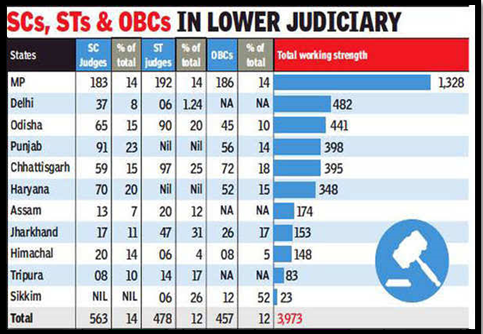MADRAS HIGH COURT VERDICT ON LAW OFFICERS’ APPOINTMENT:
Why in the News?
- Madras High Court rules that appointments of law officers need not adhere to reservation policies.
- The court rejects arguments that the Appointment of Law Officers Rules, 2017, failed to provide adequate reservations.
Professional Relationship Acknowledged:
- The court underscores the professional nature of the relationship between the government and law officers.
- Points out that law officers, not holding civil posts, are not subject to Article 16(4) of the Constitution regarding reservations.
Law Officer Role Defined:
- Advocate-General asserts that the position of a law officer is not a civil post, and lawyers engaged are not government employees.
- Refers to the Supreme Court’s Indra Sawhney case, suggesting that certain positions, including law officers, may not be suitable for reservations.
Key Court Observations:
- The Madras High Court ruled that merit should be the top priority when appointing law officers, due to their unique professional role.
- Law officers are not civil servants, so reservation policies don’t apply to them.
Source: ToI
What is the Constitutional status of Reservation?
Reservation in India has a constitutional basis and is enshrined in the Constitution of India under Articles 15(4) and 16(4).
- Article 15(4): Allows the state to make special provisions for the advancement of socially and educationally backward classes, including SCs, STs, and OBCs, in matters related to admission to educational institutions.
- Article 16(4): Permits the state to make reservations in public employment for any backward class of citizens, which, in the opinion of the state, is not adequately represented in the services under the state.

 Source: ToI
Source: ToI

